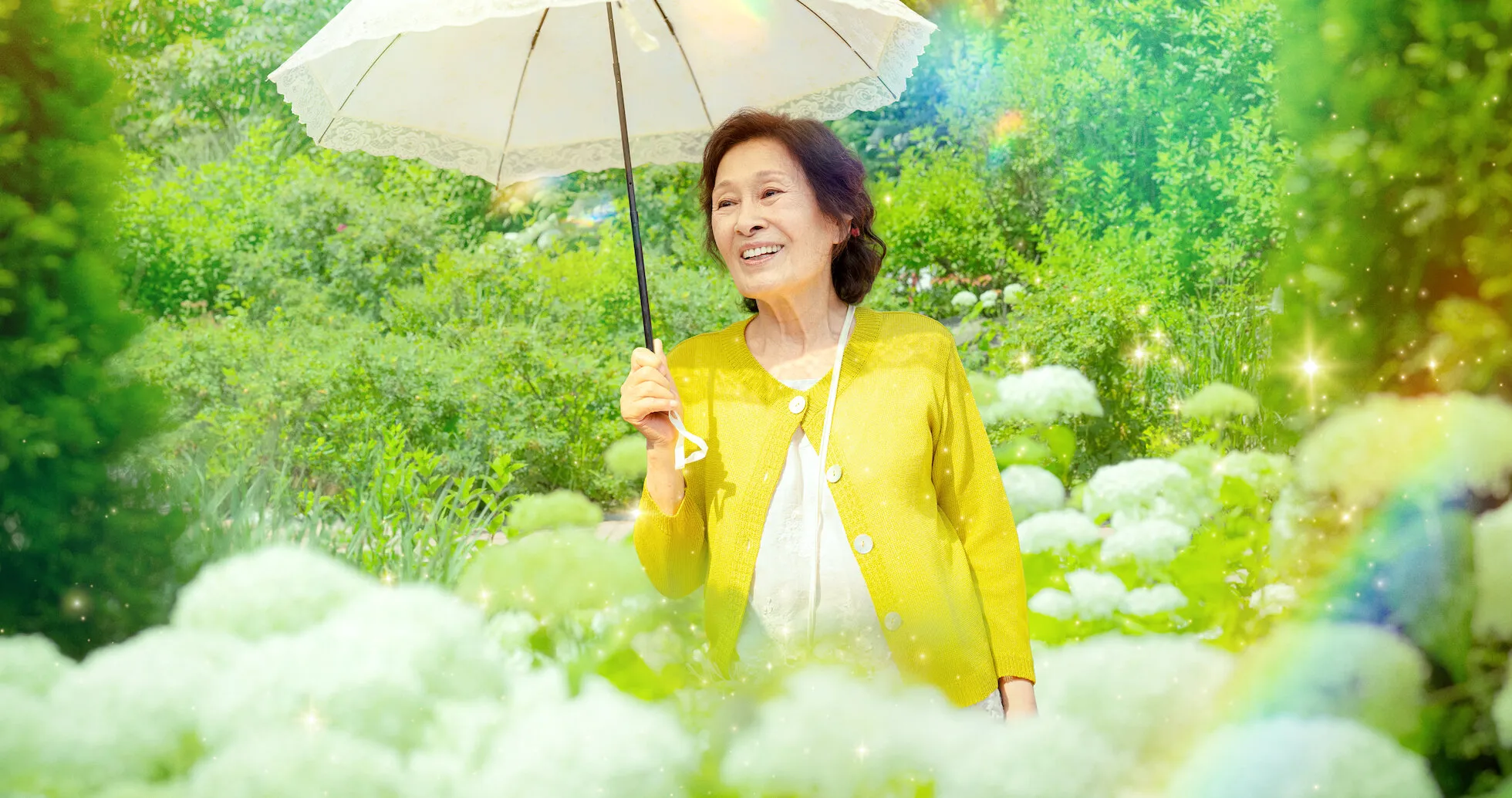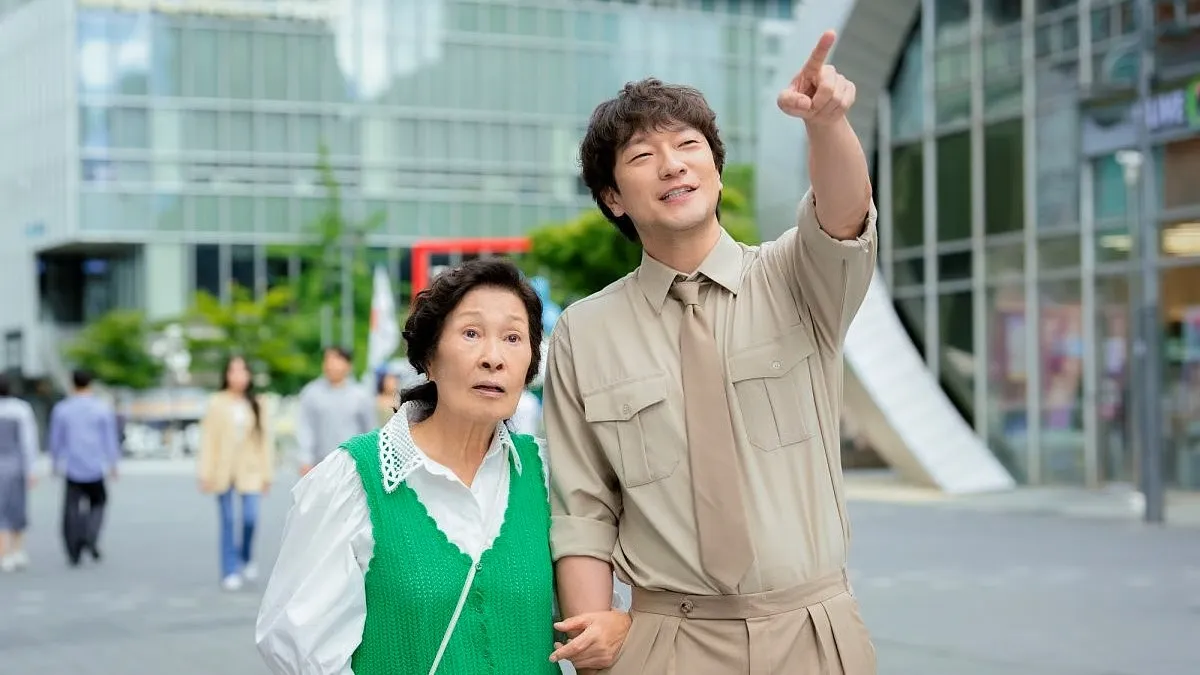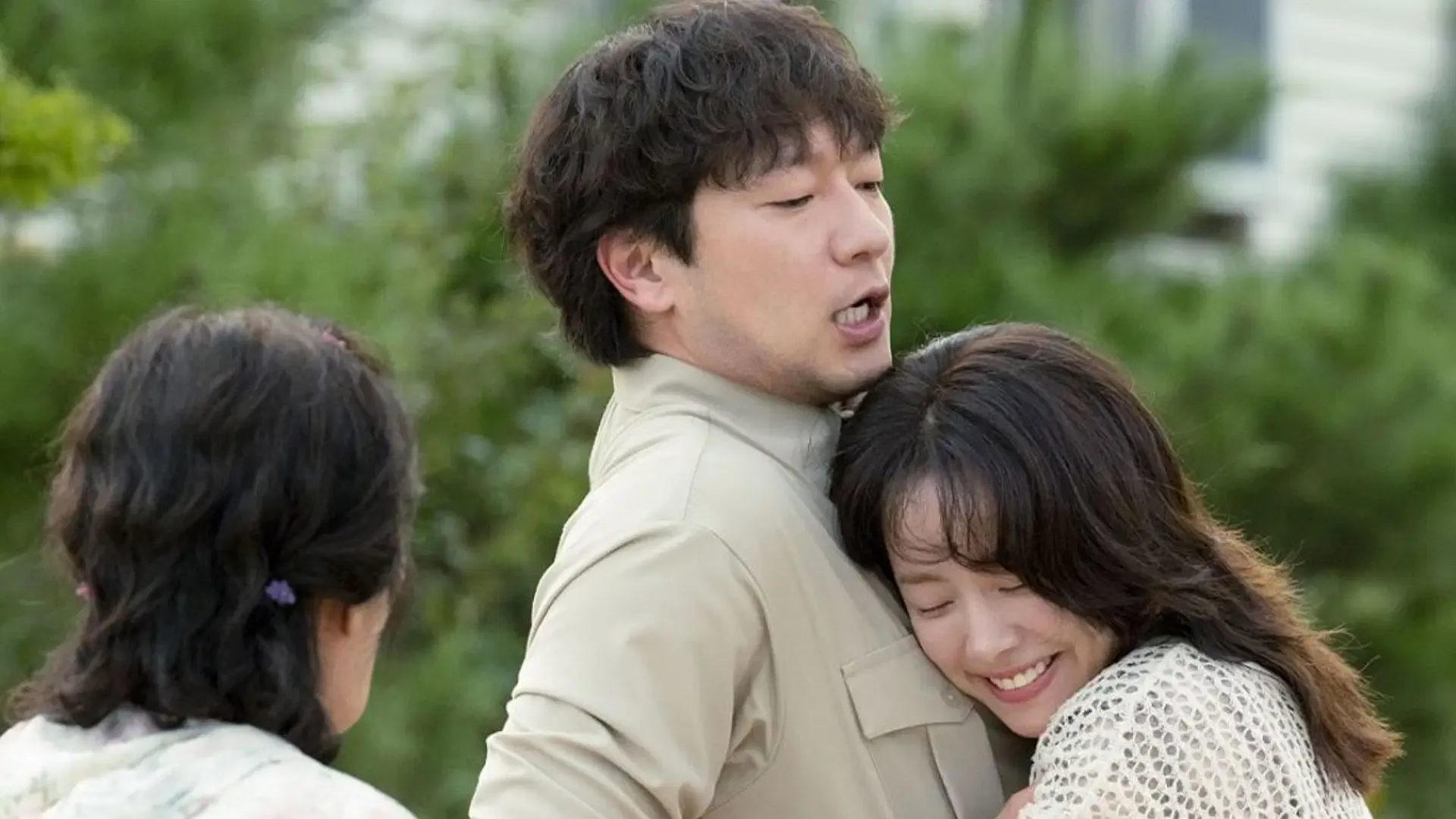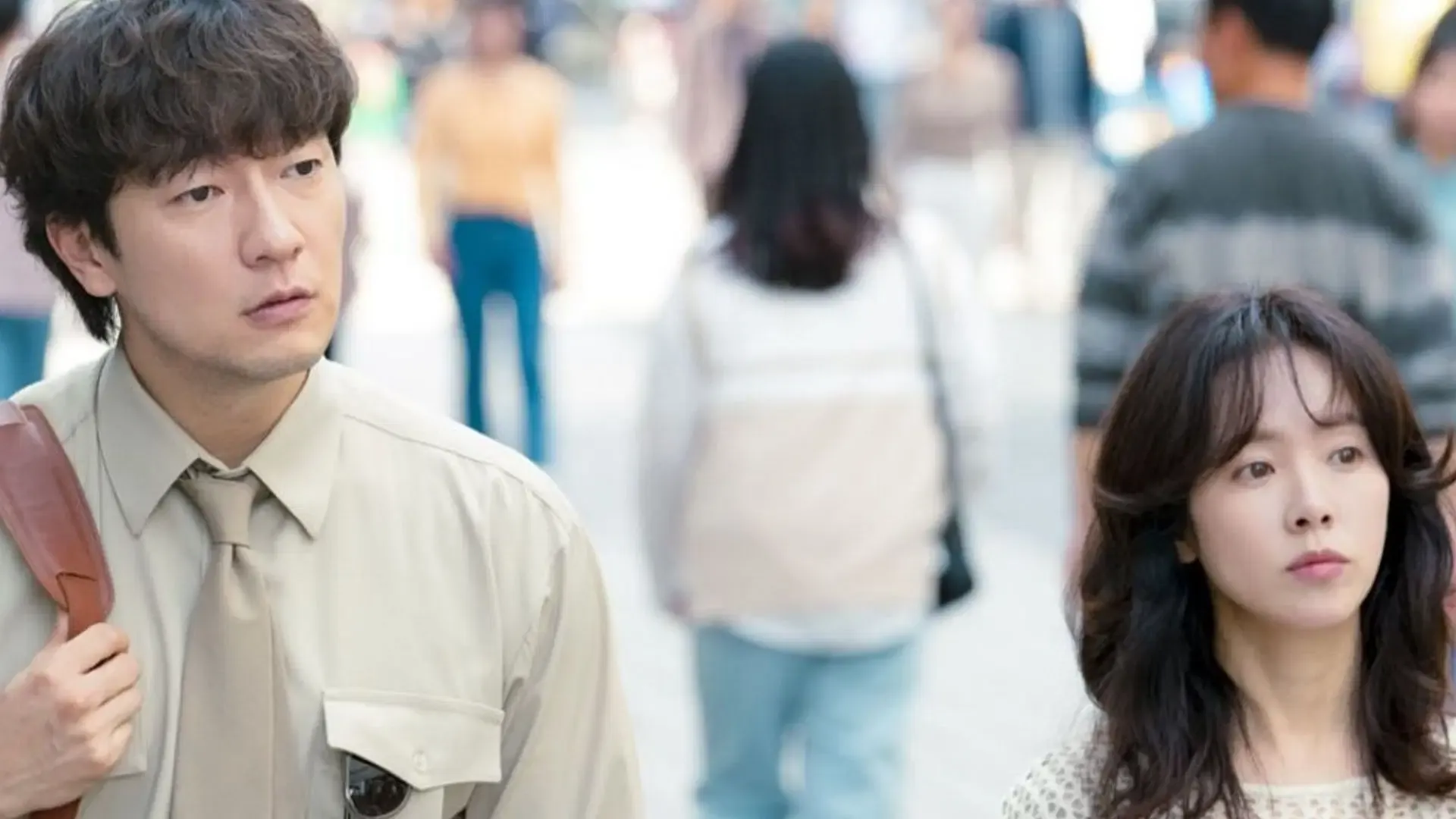In the ever-expanding catalog of streaming-era K-dramas, where high-concept premises are the new currency, comes a story that pushes a tale of enduring love into deeply unfamiliar territory. Heavenly Ever After introduces us to Lee Hae-sook, an 80-year-old woman arriving in the hereafter to reunite with her recently deceased husband, Ko Nak-jun.
Theirs was a love forged through decades of earthly hardship. She, honoring his final compliment that she was most beautiful in her old age, chooses to retain her physical form. The twist arrives with a quiet, stunning absurdity: Nak-jun has opted to revert to his 30-year-old self.
The series thus posits its central thesis: in a reality where identity is a selectable attribute, can a love defined by shared time survive when that time is rendered visually obsolete? The stage is set to explore if a bond that withstood a lifetime on Earth can navigate a five-decade age gap in paradise.
From Earthly Debts to Heavenly Bureaucracy
To earn its fantastical premise, the series first grounds itself in the unglamorous reality of survival. The narrative wisely invests in flashbacks that reveal Lee Hae-sook not as a gentle elder, but as a formidable loan shark, a role she adopted out of necessity following her husband’s tragic accident.
This is a pointed subversion of the typical grandmotherly archetype; Hae-sook is a woman whose public identity was forged by economic desperation and sustained by a hardened will. These earthly scenes, showing her as both a ruthless businesswoman and a tender caretaker for Nak-jun, provide the emotional proof for their profound bond. Their shared history of hardship and humor feels authentic, making their eventual reunion a moment weighted with genuine anticipation.
This gritty backstory then collides with an afterlife that functions with all the spiritual wonder of a municipal government office. The journey to Heaven is a subway ride, followed by an airport-style checkpoint where souls make their most critical choice: the age they will inhabit for eternity.
This gamification of the hereafter is a distinctly modern narrative trend, reframing paradise as another system to be navigated. The choice sets up the series’ foundational conflict when Hae-sook’s earned 80 years meet Nak-jun’s chosen 30. His look of alarm upon seeing her is more than a comedic beat; it is the instant the show’s central emotional and philosophical engine ignites.
Performance as the Narrative’s Soul
A high-concept series lives or dies by the human element that anchors its fantasy. In Heavenly Ever After, the premise is so audacious that it requires performers capable of grounding the absurd in emotional truth, a task the cast undertakes with remarkable success.
At the story’s center is Kim Hye-ja’s masterful portrayal of Lee Hae-sook. In a media landscape still fixated on youth, placing a complex 80-year-old woman at the forefront is a significant representational choice. Kim channels a lifetime of grit into Hae-sook, her face a map of resilience and her posture radiating a toughness forged in the unforgiving world of private loans.
When this formidable figure is transplanted to Heaven, Kim subtly shifts her performance to reveal a profound disorientation, her hard-won identity suddenly misaligned with the sterile, ageless environment. Her strength was her currency on Earth; in Heaven, it is an artifact.
Complementing this is Son Suk-ku’s nuanced work as the younger Ko Nak-jun. The role is a delicate tightrope walk; he is not merely a young man but an old soul inhabiting a youthful form. Son avoids caricature, instead imbuing Nak-jun with a gentle, lived-in warmth that makes his unwavering affection for his elderly wife feel completely authentic.
This performance is crucial, as it transforms their age difference from a potential source of ridicule into a genuine logistical and emotional challenge. Their shared chemistry feels less like a blossoming romance and more like a deeply embedded partnership momentarily thrown into disarray.
The humor and awkwardness of their interactions are potent precisely because their underlying connection is never in doubt. This dynamic is bolstered by key supporting figures like Lee Jung Eun’s Yeong-ae, Hae-sook’s earthly associate, whose loyalty adds texture to the world left behind and enriches our understanding of the woman Hae-sook was.
Cracks in the Celestial Foundation
For all its emotional intelligence, the series begins to falter precisely where many high-concept streaming shows do: in the architectural integrity of its world. The initial rules of the afterlife, presented with bureaucratic charm, prove to be frustratingly malleable.
A system that supposedly requires mutual consent for meetings is unceremoniously discarded to force a traumatic reunion between Hae-sook and her abusive mother-in-law, a narrative shortcut that sacrifices world consistency for a convenient dramatic beat. This “make it up as you go” approach extends to the show’s spiritual framework, which feels less like a considered cosmology and more like a theological buffet.
Prominent Christian iconography, like churches and priests, serves as familiar set dressing, yet the plot mechanics are driven by a simplified version of Buddhist reincarnation. The result is a thematically muddled universe that borrows aesthetics from different faiths without ever integrating them into a coherent philosophy.
This structural shakiness allows peculiar narrative detours to sprout, pulling focus from the compelling central relationship. A subplot involving deceased pets who appear in Heaven as adult humans attending therapy to unlearn their “natural” animal behaviors is a particularly baffling and tonally dissonant choice. While perhaps intended to be quirky, it lands as a bizarre distraction.
Similarly, a protracted mystery surrounding an amnesiac woman named Som-I introduces a cascade of plot holes—chiefly, how she bypassed the afterlife’s stringent intake process—that generate more confusion than suspense. These narrative cul-de-sacs contribute to a noticeable sag in the mid-season’s pacing, where the initial clarity of purpose gives way to a story that feels increasingly arbitrary and less confident in its own rules.
Earthly Vices and Heavenly Judgments
When it moves beyond its own convoluted mythology, the series offers a surprisingly sharp lens on contemporary life and timeless human conditions. Its exploration of love, memory, and the social currency of age is its most resonant and culturally significant contribution, offering a rare and thoughtful depiction of a lifelong romance.
The narrative is at its most potent when it directly engages with South Korean societal ills, weaving in critiques of phishing scams, dangerous cults, and the personal tragedies that fuel public discourse. This relevance is felt most acutely in its depiction of Hell.
In stark contrast to its ill-defined Heaven, the show’s underworld is a place of visceral, specific consequence where modern sins like cyberbullying and malicious journalism receive punishments drawn from ancient mythology.
However, the show’s ambitious philosophical reach ultimately exceeds its grasp. As it attempts to explain the mechanics of karma and reincarnation in its later episodes, its logic collapses into a deeply troubling oversimplification. The narrative begins to explicitly suggest that earthly suffering is a direct, deserved consequence of sins committed in a past life.
This clumsy theodicy effectively blames victims for their own trauma, a problematic stance that starkly contradicts the empathy the series otherwise works to build. It is a major misstep that muddles the show’s moral clarity and leaves a sour ideological aftertaste.
An Imperfect Paradise
Heavenly Ever After is a series that unabashedly prioritizes heart over logic. Its world-building may be inconsistent and its philosophical explorations flawed, but the profound connection between its leads consistently pulls the story back to its emotional center.
The narrative is powered by tremendous performances that sell its audacious premise, culminating in a bittersweet resolution that feels both earned and emotionally satisfying. This is a memorable, if imperfect, fable best suited for the patient viewer—one who believes a story’s emotional truth is far more important than the tidiness of its rules.
It aired on JTBC from April 19 to May 25, 2025, with 12 episodes broadcast on Saturdays and Sundays at 22:30 KST. The show is also streaming on Netflix in selected regions.
Full Credits
Director: Kim Sok-yun
Writers: Lee Nam-kyu, Kim Su-jin
Producers: Studio Phoenix, SLL (JTBC production)
Executive Producers: [not individually listed in sources]
Cast: Kim Hye‑ja, Son Suk‑ku, Han Ji‑min, Lee Jung‑eun, Chun Ho‑jin, Ryu Deok‑hwan
Composer: Kim Tae‑seong
The Review
Heavenly Ever After Season 1
Despite a narrative framework that often buckles under the weight of its own ambition, Heavenly Ever After succeeds on the sheer force of its central performances and its heartfelt exploration of enduring love. Its inconsistent world-building and problematic philosophical turns are significant distractions, yet the poignant emotional core remains its saving grace. A worthwhile, if often frustrating, watch for its powerful depiction of a love that transcends age and even logic.
PROS
- Exceptional lead performances with palpable chemistry.
- A rare and touching focus on love in old age.
- A unique and emotionally resonant central premise.
- Offers sharp commentary on specific societal issues.
CONS
- Inconsistent world-building with contradictory rules.
- Muddled philosophical themes that become problematic.
- Uneven pacing due to distracting and bizarre subplots.
- Narrative logic is frequently sacrificed for convenience.




















































